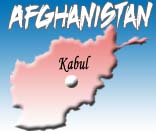US official cites progress in anti-drugs efforts in Afghanistan
 Stockholm - Progress has been made in reducing the production of poppy used to make opium and heroin in Afghanistan, the head of the US government's Office of National Drug Control Policy said Tuesday in Stockholm.
Stockholm - Progress has been made in reducing the production of poppy used to make opium and heroin in Afghanistan, the head of the US government's Office of National Drug Control Policy said Tuesday in Stockholm.
John P Walters said that while conditions in Afghanistan were "very difficult" there had been signs of progress in reducing poppy fields in parts of the country where security had improved including in the north and east.
In addition to efforts to destroy poppy fields, Walters said "development assistance" also helped woo farmers away from poppy cultivation but underlined the continued need to strengthen local and national institutions and take on corruption.
Afghanistan is regarded as the world's main source of poppy.
Walters, appointed in 2001, coordinates US federal government drug control programmes. Speaking on the sidelines of a three-day conference on drugs and drugs prevention in the Swedish capital, he also cited success in countering drugs trafficked from countries like Colombia and Mexico, but expressed concern over lack of support from Venezuela.
The government of Colombia had taken "great risks," Walters said in an overview of efforts to tackle the global drugs trade.
Venezuela's lack of cooperation had contributed to drugs, including cocaine, being ferried via air and sea routes to states in the Caribbean region and on to the US but also to West Africa from where it was smuggled to Europe, Walters said.
The World Forum Against Drugs was the initiative of 11 Swedish organizations that are engaged nationally and internationally in efforts to tackle drug abuse and was attended by delegates from some 80 countries. (dpa)